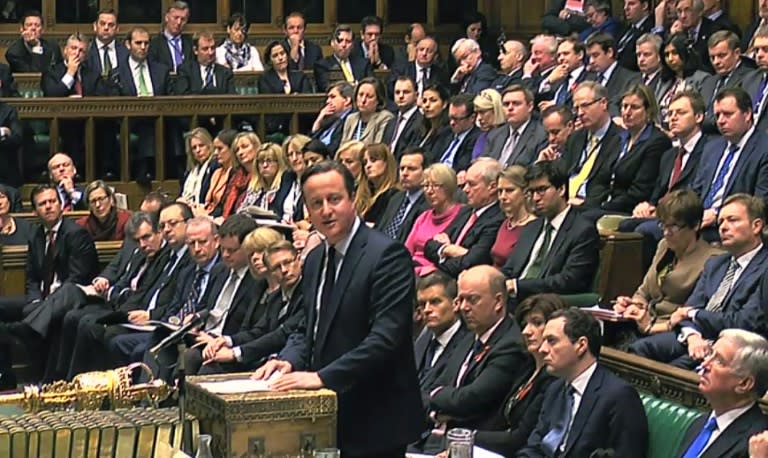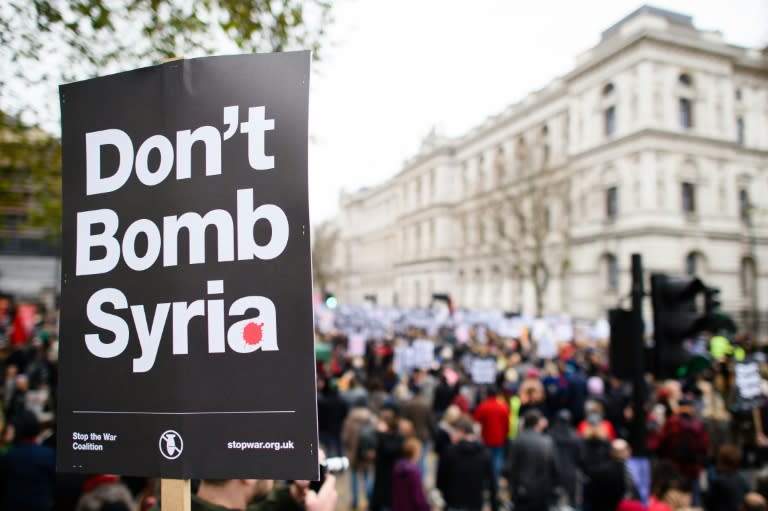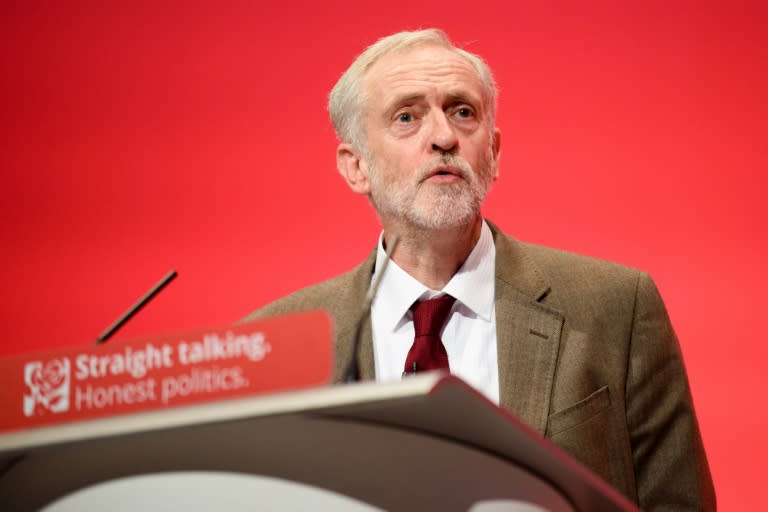Britain set to back Syria air strikes in vote Wednesday
Britain looks poised to join air strikes on Islamic State (IS) group targets in Syria this week after Prime Minister David Cameron announced Monday that a vote would be held in parliament Wednesday. The announcement came after the main opposition Labour party decided to let its MPs vote with their individual consciences rather than trying to force them to oppose military action, meaning Cameron is set to get the clear majority he wanted. But Labour was left looking deeply split on the issue after its left-wing leader Jeremy Corbyn confirmed that he would vote against air strikes while a string of other centrist MPs said they would support them. "I can announce that I will be recommending to Cabinet tomorrow that we hold a debate and a vote in the House of Commons to extend the air strikes," Cameron said in a televised statement. "We will make sure that we have a very long and full debate on Wednesday." Cameron has wanted Britain to extend its operations against IS jihadists in Iraq to Syria for months but held back because he would not have been able to gain support from parliament due to Labour opposition. His previous government suffered one of its most embarrassing defeats in 2013 when it was defeated on a plan to take military action against the regime of President Bashar al-Assad in Syria. However, in the wake of this month's Paris attacks which killed 130 people, he has made a fresh push for Britain to extend its role in the fight against IS. In his statement, the prime minister said Britain wanted to "answer the call from our allies and work with them because ISIL (another acronym for IS) is a threat to our country and this is the right thing to do." Foreign Secretary Philip Hammond said he was now "confident" that most MPs would support air strikes when there was a vote. - 'Not a shambles' - Meanwhile, Corbyn faces the toughest challenge of his nearly three-month leadership over the air strikes vote. His party is split between left-wing MPs, supported by many of the grassroots activists who swept him to power, who oppose the strikes and centrist lawmakers who are in favour. Monday's shadow cabinet meeting was told that some 43 percent of Labour MPs -- nearly 100 out of 231 -- supported air strikes while 57 percent or 132 would oppose them. His decision to call a free vote was seen as a way of trying to prevent any resignations from his team over the issue. But analysts said it risked making him look weak because he could not control his party. The Stop The War Coalition, which Corbyn helped found and which held a 5,000-strong anti-strikes protest at Downing Street Saturday, said a free vote made war "much more likely". Corbyn's spokesman said there was "no question" that most of the Labour party was against air strikes. "I don't think it's a shambles, it's taking account of the fact that there are very significant differences of opinion," he added of the decision to hold a free vote. In a sign of the splits, Labour sources said that in Wednesday's pre-vote debate, Corbyn would open proceedings speaking against air strikes while his foreign affairs spokesman Hilary Benn would speak in favour. Another reason the issue is so sensitive for Labour is the legacy of past conflicts such as the Iraq war, which former Labour leader Tony Blair led Britain into in 2003 on evidence that was later hotly disputed. The conflict, which left a total of 179 British personnel dead, is now deeply unpopular in Britain. A YouGov opinion poll published last week found that 59 percent approved of Britain joining air strikes in Syria, compared to 20 percent who disapproved and 21 percent who did not know. Some 127,000 people have also signed a petition to parliament urging a vote against military action in Syria. Britain has eight Tornado fighter jets and an unconfirmed number of armed and surveillance drones already deployed in the international mission against IS. But it currently only conducts surveillance and intelligence missions over Syria.

 Yahoo Finance
Yahoo Finance 


